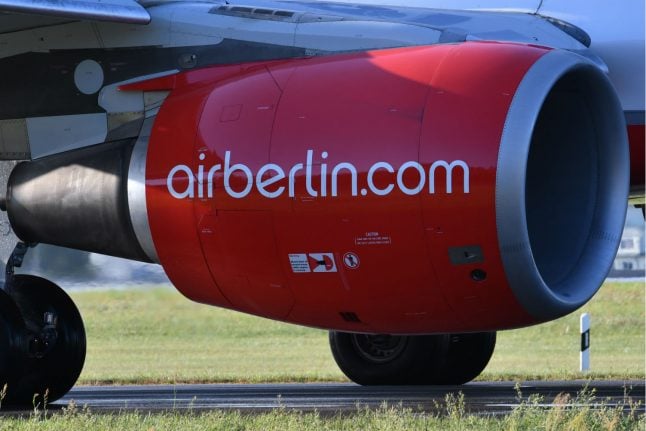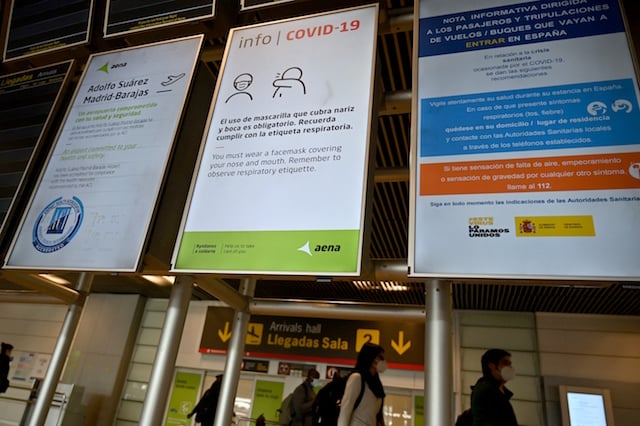Some 8,500 employees, 140 aircraft and a string of precious landing slots at German airports are in the sights of potential buyers, who range from airline behemoth Lufthansa to upstart challengers like Austrian Formula One legend Niki Lauda.
They have until 1200 GMT to submit offers, with “concrete decisions” expected from management no later than September 25th.
Air Berlin carried 36 million passengers in 2016 but has long struggled for survival, booking losses amounting to €1.2 billion over the past two years.
After main shareholder Etihad Airways withdrew its financial support in mid-August, the airline triggered bankruptcy proceedings and gave potential buyers a month to submit offers for its assets.
Economy Minister Brigitte Zypries declared that “no one company will be able to buy Air Berlin for competition reasons”.
Lufthansa, by far Germany's biggest carrier, appears hungry for Air Berlin's planes.
It already leases 38 aircraft from its smaller competitor, and could be interested in up to 90, according to media reports.
But competitors in the bidding have accused Lufthansa of seeking a monopoly over the German skies.
'Stitch-up'
Michael O'Leary, outspoken chief executive of Ireland's no-frills carrier Ryanair, called a stormy Berlin press conference to denounce a German “stitch-up” in favour of Lufthansa.
He told journalists he would not be joining the fray – although some analysts thought the wily businessman might be bluffing.
Meanwhile, Bavarian aviation investor Hans Rudolf Wöhrl has already published a €500-million offer to buy Air Berlin as a whole – and invited his rivals to team up with him on the offer.
And Austrian Formula One champion Niki Lauda announced a bid with Thomas Cook Wednesday to buy 38 Air Berlin planes, along with those belonging to the airline's low-cost subsidiary that bears his first name.
Press reports have pointed to more potential offers from EasyJet, tourism operator TUI as well as Jonathan Pang, the Chinese owner of Parchim cargo airport in northeast Germany, and Utz Claassen, the former head of German power supplier EnBW.
Air Berlin boss Thomas Winkelmann – a former Lufthansa executive – has admitted to talks with around 10 potential investors even before the deadline passed, aiming to close a deal “at the latest in September”.
But pilots added a spate of turbulence to the final approach, who staged a two-day “sick-out” this week that saw some 300 flights cancelled and left more than 10,000 furious passengers waiting to find out if they will be compensated.
Running on empty
Aircrew were “playing with fire” with their protest, which had cost the company “several million euros”, CEO Winkelmann charged.
But Germany's giant services sector union Verdi expressed solidarity with the protest action.
“All the conversations surrounding insolvent Air Berlin are always about its economic interests, never about the jobs of its more than 8,000 employees,” said Verdi board member Christine Behle.
Insolvency administrators and executives fear one thing above all: dissolution of the company, which is out of cash and running on fumes.
Chancellor Angela Merkel's government granted a €150-million emergency loan to keep Air Berlin's planes in the air for three months, including on routes to Germans' beloved Spanish holiday island of Majorca.
The funds helped save millions of people's holidays in the last months before a late September general election.
Meanwhile, the carrier has already struck off many long-haul flights to North America or the Caribbean, but claims on its website that it will keep serving other routes.



 Please whitelist us to continue reading.
Please whitelist us to continue reading.